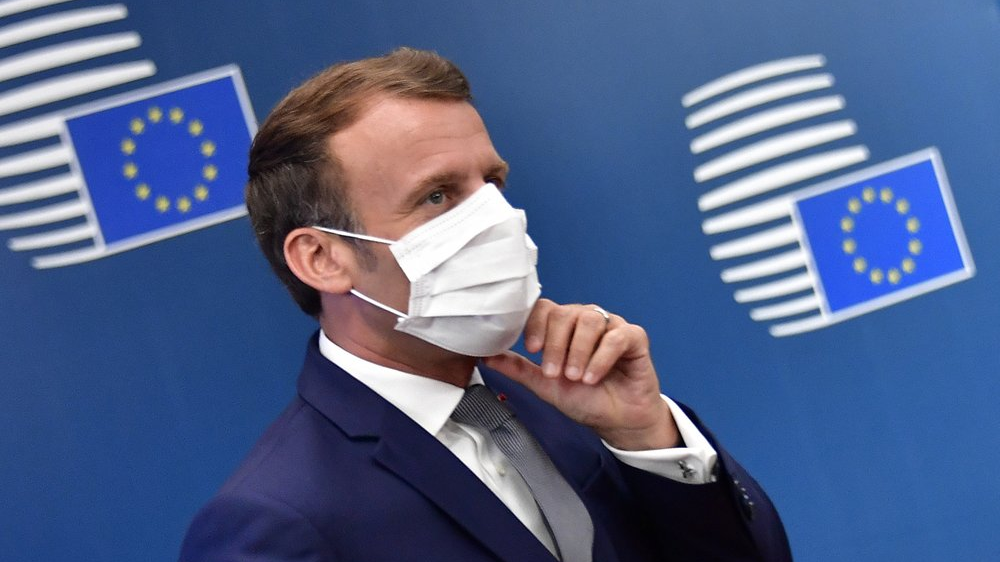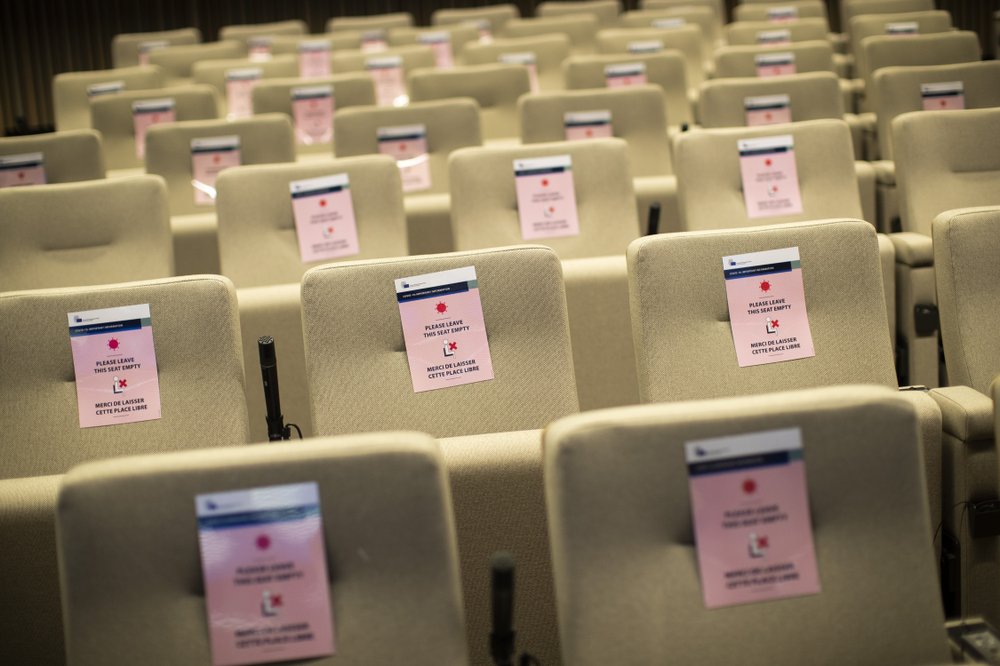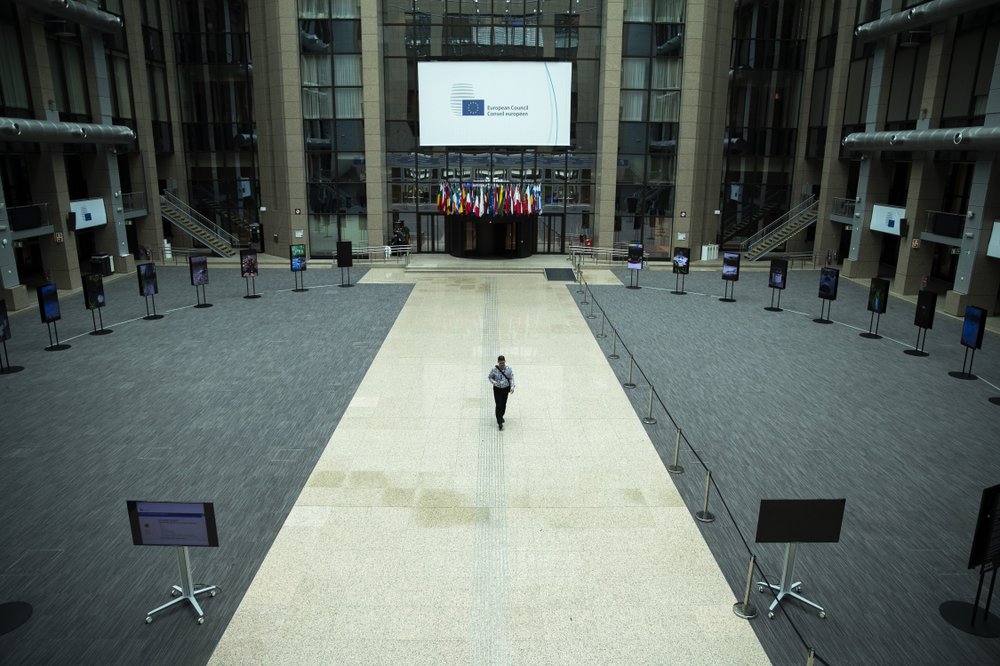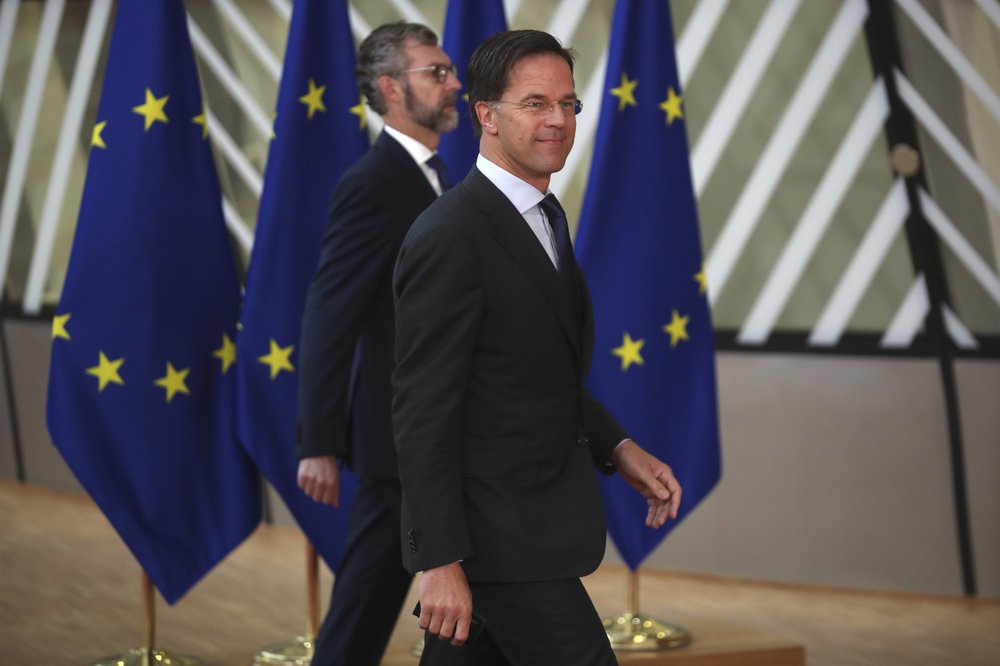
French President Emmanuel Macron arrives for an EU summit at the European Council building in Brussels, July 17, 2020. /AP
French President Emmanuel Macron arrives for an EU summit at the European Council building in Brussels, July 17, 2020. /AP
The leaders of the European Union (EU) held their first face-to-face summit in five months Friday in the largest room they could find at their summit center so they can keep apart as a health precaution. That's not the only way in which they are far apart – they are also a long way from one another on the subject of the meeting: plans for an unprecedented 1.85 trillion euro (2.1 trillion U.S. dollars) EU budget and recovery fund.
French President Emmanuel Macron led the early negotiations, arriving Thursday and using the the pre-summit hours to meet with Netherlands' Prime Minister Mark Rutte, a stringent budget hardliner and considered one of the biggest obstacles to reaching a deal at the two-day meeting.
The challenges facing the 27 EU nations are formidable. The bloc is suffering through the worst recession in its history and member states are fighting over who should pay the most to help other countries and which nations should get the most to turn around their battered economies.

Signs are placed onto seats to keep a physical distance to prevent the spread of the coronavirus, in the main press room at the European Council building in Brussels, July 16, 2020. /AP
Signs are placed onto seats to keep a physical distance to prevent the spread of the coronavirus, in the main press room at the European Council building in Brussels, July 16, 2020. /AP
"The crisis brought about by this pandemic, with all of its economic and social consequences, is the most severe we have had to face since the Second World War," European Council President and summit host Charles Michel said late Thursday.
Delegations will be cut to a minimum, leaving leaders more dependent on their own knowledge of complicated dossiers.
Since the pandemic struck, German Chancellor Angela Merkel, who has been in office for 15 years, has been seen as a safe pair of hands to lead her country through the crisis and now Germany holds the rotating six-month EU presidency.
The pandemic sent the EU into a panic as it was at a loss on how to coordinate policies of its member states early on. Now, the EU's executive is proposing a 750-billion-euro recovery fund, partly based on common borrowing, to be sent as loans and grants to the most needy countries.

The empty atrium, usually full of tables for journalists to work during EU summits, at the European Council building in Brussels, July 16, 2020. /AP
The empty atrium, usually full of tables for journalists to work during EU summits, at the European Council building in Brussels, July 16, 2020. /AP
Merkel and Macron are backing a recovery package made up of a mixture of loans and grants to member states to revive economies shattered by the virus and preventive lockdowns.
Friday's talks are expected to run into Saturday and perhaps even Sunday, but few here are confident of a breakthrough, despite the tight timetable, so another summit may well follow later this month.
The Netherlands has emerged as the most likely hold out, but Rutte's position is backed to varying degrees by fellow members of the so-called "Frugal Four" – Sweden, Denmark and Austria.
Rutte put the chance of success this weekend at less than 50 percent. "I think we have very hard and difficult two days today and tomorrow," said Estonian Prime Minister Juri Ratas.

Dutch Prime Minister Mark Rutte (R) arrives for an EU summit at the European Council building in Brussels, July 17, 2020. /AP
Dutch Prime Minister Mark Rutte (R) arrives for an EU summit at the European Council building in Brussels, July 17, 2020. /AP
The European Council President's draft plan foresees a recovery package, made up of 250 billion in loans and 500 billion in grants and subsidies that would not have to be repaid by the recipient member states.
This package is in addition to the planned 1,074-billion-euro seven-year EU budget from 2021 to 2027 that the leaders must also agree in the coming weeks or months.
Aside from the governance of the recovery package, the leaders may also clash over efforts to make EU budget support contingent on member states respecting the rule of law.
Hungary and Poland, which have been targeted by the European Commission over their alleged drift into authoritarianism, will fight to stop such a rule being written into the budget.
(With input from AP and AFP)